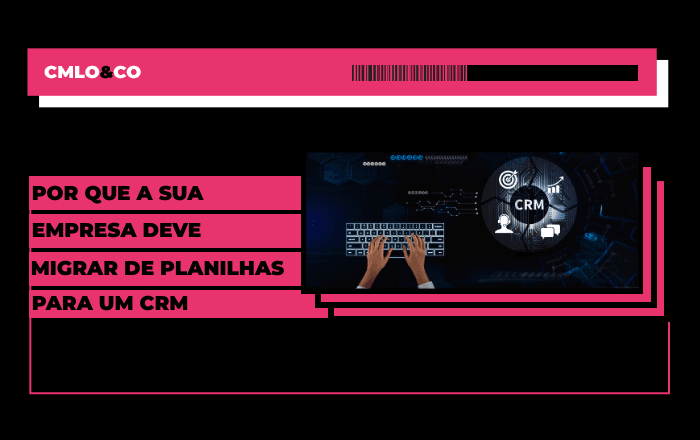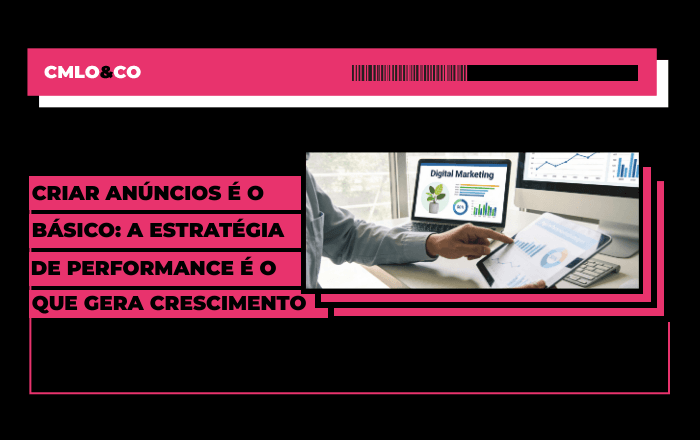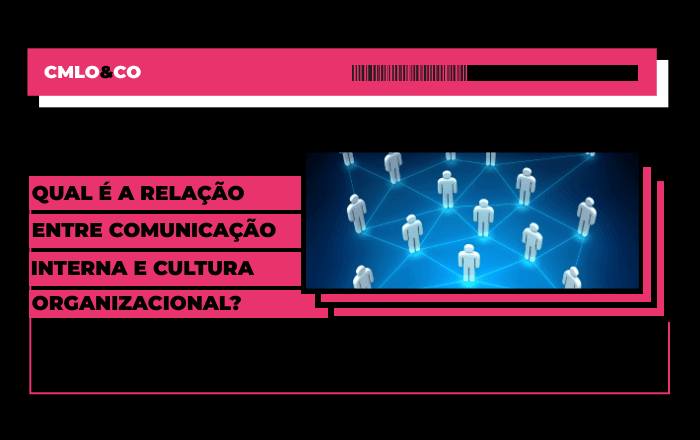Technological advances and the growth of internet access via mobile devices have transformed the way people communicate, inform themselves and, above all, consume products and services.

In this scenario, M-commerce, or mobile commerce, has become increasingly relevant and has established itself as a significant trend in the digital market.
In this article, you'll discover how to adapt your company to the mobile audience and how this opportunity can be valuable and strategic for your business in an increasingly digitalized world. Check it out!
What is M-commerce?
M-commerce, or Mobile Commerce, is a e-commerce mode which allows consumers to buy and sell products and services via mobile devices such as smartphones and tablets.
The business modality encompasses a variety of activities, including online shopping, mobile payments, banking transactions, booking services and more. All conveniently, quickly and securely, directly from their mobile devices, anytime, anywhere.
How does it work?
How M-commerce works is very similar to traditional e-commerce, but adapted for mobile devices.
In this context, commercial transactions are carried out through specific online store applications or websites optimized for mobile devices, which provide an intuitive, agile shopping experience adapted to the characteristics and limitations of tablets and cell phones.
In practice, consumers can browse the products or services available, select the items they want, add them to the shopping cart, make the payment and track the status of the order, all via their smartphones or tablets, simply, quickly and securely.
Benefits of Mobile Commerce for companies and consumers
M-commerce benefits both the companies that invest in this type of e-commerce and the consumers who are looking for practical, agile and secure solutions to make their purchases online. Read on.
For companies
- Increased reach and visibility: Mobile Commerce allows companies to reach a larger and more diverse audience, since mobile devices are widely accessible and used by a large portion of the population.
- Optimizing the customer experience: by offering a shopping experience optimized for mobile devices, companies can provide greater comfort, convenience and personalization to their customers, increasing their satisfaction and loyalty.
- Increased sales and conversions: the ease, agility and convenience of shopping via mobile devices can result in a significant increase in sales and conversion rates, boosting turnover and business growth.
- Reducing operating costs: Mobile Commerce enables the automation and optimization of various commercial processes, such as customer service, stock management and logistics, helping to reduce operating costs and improve business efficiency.
- Marketing and advertising strategies: companies can use strategies to mobile marketing targeted and personalized advertising for mobile devices, such as push notifications, geolocation and mobile advertising, to attract, engage and convert customers in a more effective and segmented way.
For consumers
- Convenience and practicality: consumers can make purchases anytime, anywhere, using their smartphones or tablets, without the need to go to a physical store or use a computer.
- Personalized shopping experience: companies can use consumer data and information to customize the shopping experience, offering relevant and personalized products, promotions and recommendations for each customer.
- Transaction security: M-commerce platforms offer advanced and reliable security systems, guaranteeing the protection of consumers' personal and financial data and safe and secure transactions.
- Ease of payment: consumers can make payments quickly, simply and securely using different payment methods available on mobile devices, such as credit cards, debit cards, digital wallets and mobile payment systems.
- Access to a variety of products and services: Mobile Commerce gives consumers access to a wide variety of products and services from different categories and segments, available in various online stores and e-commerce platforms, broadening their choice and the possibility of finding what they are looking for.
Impact on online shopping
M-commerce has had a significant impact on online shopping, representing a growing and relevant share of the global e-commerce market.
According to recent dataIn the last few years, purchases made via mobile devices have accounted for more than 70% of all e-commerce transactions in various markets, and this trend continues to grow. And all this growth is not so difficult to explain.
The development of advanced mobile technologies, the improvement of the user experience on online sales platforms and changes in consumer behavior and preferences have driven the growth and expansion of Mobile Commerce, making it a fundamental and indispensable part of the global e-commerce market.

Differences between e-commerce and M-commerce
E-commerce and M-commerce are two forms of e-commerce that share similarities in terms of concept and operation, but differ in terms of characteristics, advantages, challenges and strategies adopted.
While e-commerce refers to the process of buying and selling products and services via computers connected to the internet, M-commerce is specific to transactions carried out via mobile devices such as smartphones and tablets.
These characteristics, in fact, shape the main differences between the two types of business, as highlighted below:
Accessibility and convenience
M-commerce offers greater convenience and accessibility, allowing consumers to make purchases anytime, anywhere, directly from their mobile devices.
Meanwhile, traditional e-commerce requires the use of a computer and a stable internet connection.
Interface and user experience
Mobile e-commerce platforms are designed and optimized specifically for mobile devices, offering an intuitive, agile user experience adapted to the characteristics and limitations of smartphones and tablets.
On the other hand, traditional e-commerce platforms are designed for computers and devices with larger screens, and don't always offer a fully optimized user experience for mobile devices.
Location and geolocation
Mobile Commerce takes advantage of the geolocation of mobile devices to offer personalized services and promotions based on the user's current location, which can be a significant competitive advantage in marketing and sales strategies.
In traditional e-commerce, geolocation can be used, but in a less integrated and efficient way compared to M-commerce.
Technology and innovation
Mobile Commerce is always evolving and takes advantage of technological innovations and emerging trends such as augmented reality, artificial intelligenceThe new technology, such as proximity payments (NFC) and wearable devices, provides a more interactive, personalized and convenient shopping experience.
Traditional e-commerce also benefits from technological innovations, but can be less agile and adaptable to market changes and trends than mobile.
Safety and reliability
Both M-commerce and traditional e-commerce must guarantee the security and reliability of transactions and user data.
However, M-commerce platforms are frequently updated and optimized with advanced security measures specific to mobile devices, such as biometric authentication, data encryption and anti-fraud systems, to protect consumers and ensure safe and secure transactions.
How can you adapt your company to a mobile audience?
To adapt your company to the mobile audience and take advantage of the opportunities offered by M-commerce, it is essential to invest in successful strategies optimized for mobile devices. Here are 5 useful and relevant tips for you to apply to your business:
Develop an optimized mobile application
The first step to becoming part of mobile commerce is to invest in developing an optimized, intuitive and easy-to-navigate application. It must offer a personalized, agile shopping experience adapted to the characteristics and preferences of mobile users.
Optimize your site for mobile devices
In addition to the app, you need to make sure that your website and e-commerce platform are optimized for mobile devices. This will guarantee user experience responsive, fast and intuitive, regardless of the device used by the consumer.
Implement mobile marketing strategies
As we saw earlier, one of the advantages of M-commerce is that it makes it possible to use targeted and personalized marketing strategies, such as mobile advertising, push notifications, geolocation, promotions and exclusive offers for mobile devices. This helps to attract, engage and convert customers in an effective and segmented way.
Diversify your mobile payment options
Another great advantage of Mobile Commerce is the possibility of providing a variety of secure, fast and convenient mobile payment options for the consumer.
You can, for example, offer digital wallets, credit and debit cards, PIX, payment link, boleto and integrate your e-commerce with other popular and reliable payment platforms.
Analyze and monitor data and metrics
Finally, monitor and analyze constantly analyzing the data, metrics and behaviors of mobile device users to identify trends, preferences, challenges and opportunities.
These insights will help you adapt and optimize your M-commerce strategies according to consumer needs and expectations.
Conclusion
Mobile commerce is a type of e-commerce that has gained increasing relevance and popularity in the global digital market.
With technological advances and increased access to the internet via mobile devices, M-commerce offers a series of benefits and opportunities for both companies and consumers, transforming the way people buy and sell products and services online.
For companies wishing to adapt and take advantage of the benefits offered by this type of business, it is essential to invest in successful, optimized and personalized strategies for mobile devices, which provide an agile, intuitive, secure and convenient shopping experience for consumers.
In this sense, relying on CMLO&CO's strategic partnership could be the key to success you need to thrive in this digital environment. Our customized, innovative and efficient solutions will help your company adapt, grow and stand out in the mobile commerce market. Contact us and find out how we can help.







